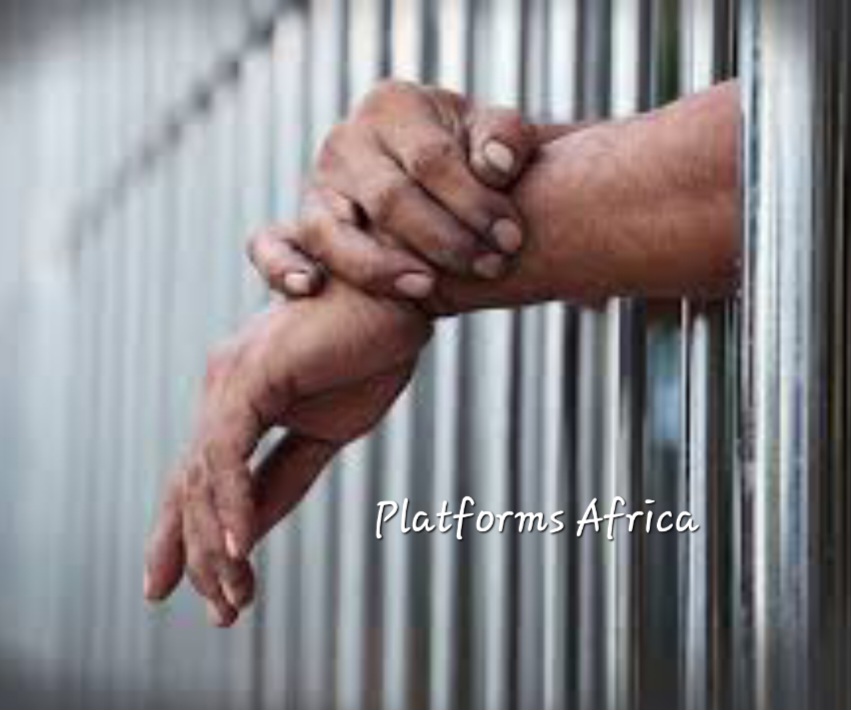Russia and China may not agree on everything, yet they agree on most things. You may, in this well scripted view about the third force in Russian-Ukrainian tension, want to read about what Xi Jinping is peeping at in Vladimir Putin’s playbook
On February 24, 2022, just about the time Russia was shelling Ukraine with bombs and artilleries, nine Chinese military aircrafts were in a show of force, flying through Taiwanese airspace unrestrained. Either planned or by coincidence, a message was being passed across and it was one that Xi Jinping, the Chinese President expected not just the Taiwanese people but the world at large to decipher.
To be sure, the aircraft show was not the first of its kind that Beijing has had to put up in recent months. In each occasion, Tapei has had to hurriedly scramble its own aircrafts in defence. On October 4, 2021 for instance, a total of 54 Chinese military aircrafts flew through the Taiwanese Air Defense Identification Zone (ADIZ). That was the biggest single day entry ever recorded since such security breach has had to be recorded by Taiwan. Taipei’s record of such provocations began two years ago and October, 2021 was adjudged to be the most provocative, with a total 196 entries. And as recent as January 24, 2022, just a month before the Russia invasion of Ukraine, a total of 39 Chinese military planes intruded Taiwanese ADIZ.

Since the Russian invasion of Ukraine began over in February 2022, not a few global commentators have raised concerns that China may be learning a thing or two on how to actualise its constant threats to bring Taipei to conformity over its much-parroted One-China policy.
READ ALSO:Russian-Ukrainian War: Prices Africa Is About To Pay, By Nurudeen Oyewole
Unlike Russia that claims its fight is to “demilitarise and denazify” Ukraine, China is laying claim to the entirety of the island territory and its over 25 million population. Beijing insists that Taiwan is part and parcel of its territory and has had to spat with any country that offers Taiwan recognition of independence. Today, only 14 countries still recognise Taiwan as an independent country, many of which are island nations with small populations. The shrink in Taipei’s recognition is attributed to China’s shrewd diplomacy, using both soft and coercive measures to win more countries to its claims that Taiwan is part of it and not an independent entity.
But just like Ukraine, Taiwan’s main backer has been Washington DC. While the United States’ push for Ukraine to be part of its military hegemony through the North Atlantic Treaty Organisation (NATO) has been quite open, it has struggled to maintain some sort of balance between China and Taiwan. In one hand, it gives Beijing the impression that it recognises its claim on Taiwan and in other instance; it romances Taiwan, expressing solidarity with it on its right to exist. For keen global observers, maintaining such delicate balance while at the same time arming Taiwan (just like Ukraine), makes it hard to know how serious US is in avoiding confrontation with China.
If anything, not a few will agree that Washington derives pleasures in putting both Russia and China – its two biggest rivals on constant edge with defiant states on their borders. Yet such posture by Washington has manifested dangers; the type already playing out in Russia invasion of Ukraine. Pundits will therefore be right to stake that in the heart and soul of Xi, Russia’s handling of Ukraine is pointing at the direction Beijing may finally adopt in handling Taipei’s debacle.
There are further reasons to believe so. The partnership between Russia and China has grown tremendously in recent years. Both have taken each other as ally in the constant attempts to rebuff Washington and its western allies’ pressures. Even as they do not agree on everything, they agree on most things. China was the only foreign country Vladimir Putin visited before he launched all-out invasion of Ukraine. Many would put a bet that the move was to seal further economic lifeline with Beijing in anticipation of barrage of sanctions that had so far been imposed on his country by the western hegemons. When other countries rushed to condemn Russia’s invasion, Beijing had managed to stick to Moscow script, calling it, “special military operation”. And rather than offering any direct rebuke of the invasion, China has continuously directed attention to what it calls, ‘Washington and NATO excesses’ as well as the need to pay attention to Russia’s concern.
At a time most western businesses are folding up in Russia and economic ties were being severed, China, has had to maintain its relationship, importing both Russian wheat and its fuel. In return, most Russian Banks already cut off from west-sponsored international transaction platforms, are scrambling to adopt Chinese exchange hub, the UnionPay. The extent at which these gestures will salvage Russian economy is what is yet to be seen in the long run.
Although, China has offered to mediate between Russia and Ukraine, it is hard to think Putin will have anything to lose in a mediation effort spearheaded by Xi, his trusted ally. It is an open secret that the duo effuse political dexterity that has so far enhances their vice-grip controls of their respective countries. It’s a given that they peep at each other’s playbooks.
Nurudeen Oyewole writes from Ireland, Europe





